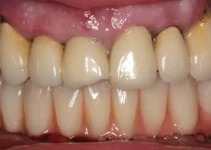Snoring can affect the quality of sleep for both the snorer and their partner, leading to daytime fatigue and strained relationships. It occurs when air cannot flow freely through the airways during sleep, causing the surrounding tissues to vibrate and produce the familiar snoring sound. Various factors, including anatomy of the mouth and sinuses, alcohol consumption, allergies, a cold, and body weight, can contribute to snoring. In this article, we explore a range of methods to alleviate snoring, from simple lifestyle changes such as adjusting sleep positions and managing body weight, to medical interventions like CPAP machines or surgical options. Understanding the underlying causes and exploring appropriate solutions can help you and your loved ones enjoy a quieter, more restorative night’s sleep.
Understanding Snoring
Snoring is a common condition that affects millions of people worldwide. It occurs when the flow of air through the mouth and nose is partially obstructed during sleep. This obstruction causes the surrounding tissues to vibrate, producing the characteristic sound of snoring. While occasional snoring is usually not a major concern, chronic snoring can indicate underlying health issues that need to be addressed.
Understanding the root causes and associated symptoms of snoring can lead to better management and treatment of this condition. Knowledge is key to improving sleep quality and overall health. This article aims to shed light on the various aspects of snoring, including its causes, symptoms, and potential health risks.
What Causes Snoring
Snoring can be caused by a number of factors, many of which are related to the anatomy of your mouth and throat. Common causes include:
- Nasal Congestion: A blocked nose forces you to breathe through your mouth, which makes snoring more likely.
- Obesity: Excess fat around the neck can squeeze the internal diameter of the throat, making it more likely to collapse during sleep.
- Alcohol Consumption: Alcohol relaxes the muscles of the throat, increasing the risk of snoring.
- Sleep Position: Sleeping on your back allows the tongue and soft palate to collapse to the back of the throat, causing airway obstruction.
An understanding of these causes can help in identifying specific lifestyle changes or treatments that may alleviate snoring.
Common Symptoms of Snoring
Snoring is not just a noisy inconvenience; it can often point to more significant health issues. The common symptoms associated with snoring include:
- Loud and disruptive breathing sounds
- Gasping or choking during sleep
- Frequent nightly awakenings
- Dry mouth or sore throat upon waking
- Daytime sleepiness and fatigue
These symptoms can affect not only the snorer but also their bed partner, leading to disrupted sleep and strained relationships.
Health Risks Associated with Snoring
Chronic snoring is often more than just a nuisance; it can be indicative of more severe health conditions. One of the primary health risks associated with snoring is Obstructive Sleep Apnea (OSA). In OSA, the airway becomes partially or completely blocked during sleep, resulting in reduced oxygen levels.
Untreated OSA can lead to a range of health issues, including:
- Hypertension (High Blood Pressure): The continual strain on the cardiovascular system can lead to chronically elevated blood pressure.
- Heart Disease: Repeated drops in blood oxygen levels can strain the heart, increasing the risk of heart attacks and strokes.
- Type 2 Diabetes: Sleep apnea can affect the body’s insulin sensitivity, making it a risk factor for developing type 2 diabetes.
- Mental Health Issues: Chronic sleep deprivation can lead to depression, anxiety, and other mental health disorders.
Understanding these risks underscores the importance of seeking medical advice if you or someone you know experiences chronic snoring.
For more in-depth information on sleep disorders and their management, be sure to explore our other articles.
Lifestyle Changes to Reduce Snoring
Snoring can be a disruptive and annoying problem for both the snorer and those around them. It can also be a signal of underlying health issues, such as sleep apnea. Fortunately, several lifestyle changes can help reduce or even eliminate snoring. By making these adjustments, individuals can improve their sleep quality and overall health. In this article, we will explore various lifestyle changes that can help reduce snoring. Implementing these changes can lead to a significant improvement in sleep quality and a reduction in the frequency and severity of snoring episodes.
Maintain a Healthy Weight
One of the most effective ways to reduce snoring is to maintain a healthy weight. Being overweight increases the amount of tissue in the throat, which can obstruct the airway and lead to snoring. Studies have shown that weight loss can significantly reduce the frequency and intensity of snoring in individuals who are overweight.
Losing weight involves a combination of dietary changes and regular exercise. Some tips for achieving and maintaining a healthy weight include:
- Eating a balanced diet rich in fruits, vegetables, and whole grains
- Limiting the intake of processed foods and sugary drinks
- Engaging in at least 150 minutes of moderate aerobic activity per week
- Incorporating strength training exercises at least twice a week
Achieving and maintaining a healthy weight not only reduces snoring but also improves overall health and reduces the risk of other health conditions such as diabetes, heart disease, and hypertension.
Avoid Alcohol Before Bed
Alcohol is a known muscle relaxant, and consuming it before bedtime can cause the muscles in the throat and airway to relax too much. This relaxation can lead to an obstructed airway and result in snoring. Research has shown that snoring can worsen with alcohol consumption, even in individuals who do not normally snore.
To reduce snoring, it is advisable to avoid alcohol at least 3-4 hours before going to bed. This allows the body enough time to process the alcohol and reduces its relaxing effects on the throat muscles.
In addition to avoiding alcohol, it is also helpful to maintain good sleep hygiene. This includes going to bed and waking up at the same time every day, creating a comfortable sleep environment, and avoiding caffeine and heavy meals before bedtime.
Change Sleep Positions
The position in which you sleep can have a significant impact on snoring. Sleeping on your back can cause the tongue and soft tissues in the throat to collapse to the back of the airway, leading to obstruction and snoring. Changing sleep positions can help alleviate this problem.
Sleeping on your side is often recommended as a way to reduce snoring. This position keeps the airway more open and reduces the likelihood of obstruction. Some tips to encourage side sleeping include:
- Using a body pillow to support your back and help you stay on your side
- Elevating the head of the bed to reduce airway collapse
- Using a tennis ball or other object sewn into the back of your pajamas to prevent rolling onto your back
Experimenting with different pillow heights and types can also help improve sleep posture and reduce snoring.
Implementing these lifestyle changes can lead to a significant reduction in snoring and an improvement in overall sleep quality. By maintaining a healthy weight, avoiding alcohol before bed, and changing sleep positions, individuals can take proactive steps to minimize snoring.
For more tips and in-depth information on improving sleep, check out our other articles on sleep health and wellness.
Medical Treatments for Snoring
Snoring is a common issue that can affect not only the quality of sleep of the snorer but also that of their partner. Understanding the underlying causes of snoring is crucial in determining the most effective treatment. Medical treatments have been developed to address both the symptoms and the root causes of snoring, providing relief for many individuals.
Multiple options are available, ranging from non-invasive devices to surgical procedures. Choosing the right treatment often depends on the severity of the snoring, underlying health conditions, and the preferences of the patient. Consulting with a healthcare provider can help in tailoring the most appropriate treatment plan. By exploring various medical treatments, individuals can find solutions that not only improve their own sleep but also that of their loved ones. In this article, we will delve into one of the most common treatments: CPAP machines.
CPAP Machines
Continuous Positive Airway Pressure (CPAP) machines are a widely used treatment for obstructive sleep apnea (OSA), a condition often associated with severe snoring. These machines work by delivering a steady stream of air through a mask, keeping the airway open during sleep. This method is highly effective in reducing snoring and preventing the interruptions in breathing that characterize sleep apnea.
The benefits of CPAP machines extend beyond just reducing snoring. They have been shown to improve overall sleep quality, reduce daytime sleepiness, and lower the risk of cardiovascular issues related to OSA. However, some individuals may find it challenging to adjust to wearing a mask while sleeping.
Common issues with CPAP usage include discomfort from the mask, nasal congestion, and dryness in the mouth or throat. Many of these problems can be mitigated with adjustments to the machine’s settings or by using accessories like humidifiers and different mask styles. Consistent use and proper fitting are essential for maximizing the benefits of CPAP therapy.
In conclusion, CPAP machines offer a highly effective solution for those suffering from snoring and sleep apnea. Their ability to provide immediate relief and long-term health benefits makes them a cornerstone in the treatment of these conditions. For further information and to explore additional treatments, be sure to check out our other articles.
Common Questions About Stopping Snoring
Understand more about how you can tackle snoring effectively with these frequently asked questions.
What are some effective strategies to reduce snoring?
Reducing snoring can be approached through various strategies such as adjusting sleeping positions, maintaining a healthy weight, avoiding alcohol before bedtime, using nasal strips or a nasal dilator to help keep airways open, and ensuring allergies are well-managed. For persistent snoring, consulting with a healthcare provider might be necessary to explore further treatments like CPAP machines or possible surgical options.

My name is Salman Kapa, a 73-year-old expert in bone regeneration and dental implantology. With decades of experience in the field, I am dedicated to advancing our understanding of oral health and hygiene. Through my research and writing, I aim to contribute to the development of innovative solutions in dental care.




